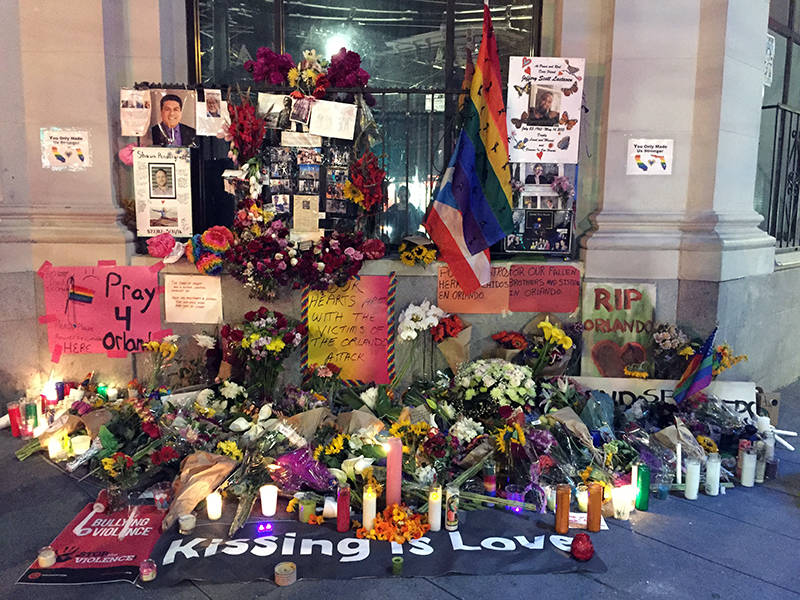Sunday morning, we woke to the horrifying news of the worst mass shooting in U.S. history. A shooter, who was, according to his father, full of rage over seeing two men kissing months before, walked into an Orlando gay club with a singular goal: murder as many innocent people as possible. And yet I wasn't surprised to hear about any of it.
Americans have come to expect mass shootings. The stories of people murdered in their churches, in movie theaters, on college campuses, in elementary schools stay with us; they cling to us like the NRA and certain politicians cling to the Second Amendment. Not even the senseless deaths of 20 children (aged six and seven) at Sandy Hook Elementary could move the meter on the effort for sensible gun laws in this country. And in all honesty, I don't expect the murder of so many queer people -- many of them Latino -- to make a meaningful impact on the gun debate either; after all, LGBT and Latino communities have been ritually dehumanized by our elected officials and our overall culture since time immemorial.
Another reason I wasn't surprised that someone would single out LGBT people for execution is because I move through this world as a gay person. We in the LGBT community rarely feel safe, which is why gay clubs exist in the first place. Even in San Francisco, touted as an LGBT Mecca, we constantly monitor how gay or trans we come across, always on the lookout for a person who might turn the moment into one of confrontation or violence. When my partner goes in for a kiss on the street or in a straight space, sometimes I go with it, but I'm not fully there; a part of my mind is always preoccupied with who's watching and what this might mean for us. Sometimes I pull away.
This may come as a surprise to some straight people. After all, the impression is we've come so far, what with nationwide marriage equality and the fun gays on Modern Family and all that. Progress is often confused with the destination.
After the Supreme Court finally put an end to the majority going to the ballot box to decide what rights should be afforded to a minority, a friend of mine congratulated me: "Now gays are fully equal!" I responded with something along the lines of "More equal than before, yes. But no, not fully equal." The response: "Well, what else do you want?"


